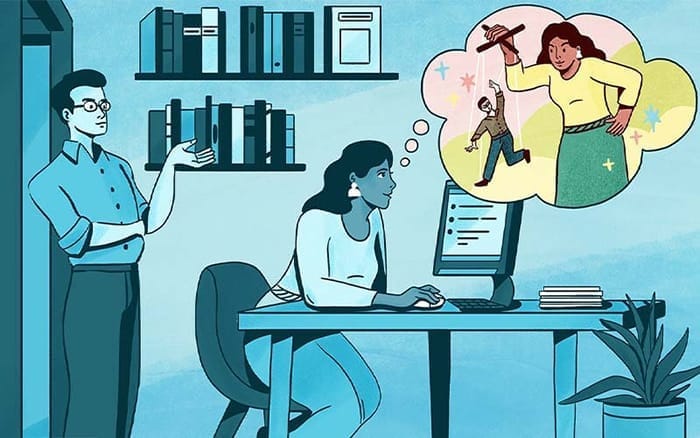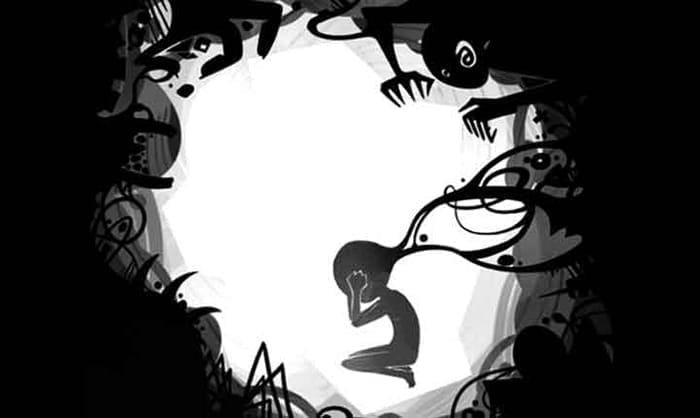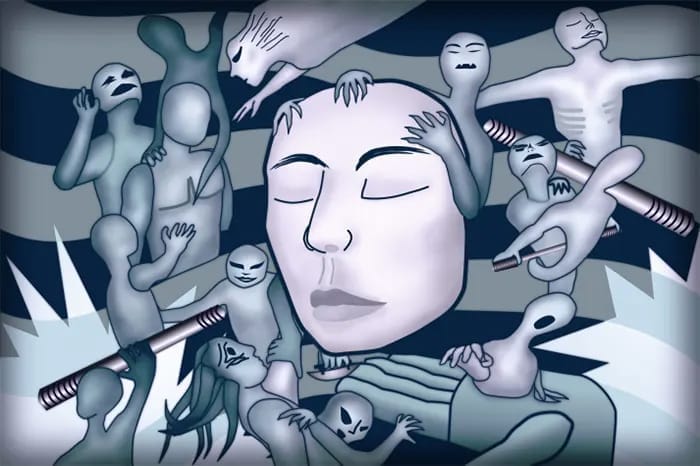In this article, we aim to define delusion, diagnose it, and explore its types, causes, and treatment.
A delusion is a deeply held and persistent belief that is typically false and outside the bounds of reality. In delusion, we observe the individual’s misinterpretation of external beliefs and what happens outside of them. In other words, a delusion is not necessarily grounded in reality, but it becomes a strong belief in the person’s mind, and they rely on it. Despite the fact that these beliefs are not factual or realistic, the individual maintains and defends them. During acute stages, the individual cannot distinguish between what is real and what is not, and they mix them up.
When interacting with individuals who have delusions, you will notice that they cannot be persuaded through reasoning or logic, and they persist in their delusional beliefs.
Types of Delusions
Erotomania (Delusion of Being Loved): Individuals with this type of delusion believe that others are in love with them. They often imagine that famous and successful people are in love with them, leading them to believe they are influential and famous as well.
These individuals reject any opinions that contradict their belief and remain persistent in their delusions. This syndrome is more commonly seen among single women with lower social status, as they attempt to compensate for their own perceived flaws and issues by associating themselves with successful people. Sometimes, the person may resort to force to achieve their delusion or to meet their imaginary lover, with the use of force being more common among men. This delusion can progress to the point where the individual believes they have a deep and intimate relationship with their imaginary lover.
Megalomania (Delusion of Grandeur): In this delusion, the person believes they are highly important, successful, intellectual, possess supernatural powers, or are immortal. This type of delusion is commonly observed in two-thirds of patients with bipolar disorder, particularly during manic episodes. It is also seen in individuals with schizophrenia and narcissistic personality disorder.
Jealousy Delusion (Delusion of Infidelity): In this delusion, the individual believes that their partner intends to cheat on or leave them. The person finds it very difficult to trust others and struggles to interact with people due to their suspicions. This often leads to constant accusations and jealousy in the relationship.
Persecution Delusion: In this type of delusion, the individual believes that there are people or groups who want to harm or kill them. Despite this belief, they think that others are conspiring or plotting against them, leading to paranoia and distrust.These individuals often feel the need to report their concerns to authorities and may frequently engage in legal proceedings, constantly filing complaints.
This is another common type of delusion, where the individual believes they have symptoms or signs of a serious illness. They constantly view themselves as being ill and become anxious, fearing that they are close to death.
Control Delusion: In this delusion, the individual believes they are being controlled by external forces, other people, or objects. This leads to unusual behavior and a disorganized and chaotic way of life, as their perception of reality is disrupted.
Nihilistic Delusion (Delusion of Void or Meaninglessness): In this type of delusion, the person believes that everything is meaningless, and nothing exists in reality. They may feel like they are in a dream or sleep, or they may view themselves as part of a story rather than living in the real world.
Mixed Delusion: In this delusion, the individual typically experiences a combination of several delusional beliefs or emotions. As a result, they are often in need of urgent treatment and care to manage the complexity of their symptoms.
Suggested article: Introduction to paranoia

Causes of Delusion Formation
There are various factors that can lead to the development of delusions, with genetics being one of the most significant. In this case, the brain fails to release the necessary levels of neurotransmitters. Essentially, the brain of individuals with delusions suffers from biochemical dysregulation and an imbalance of neurotransmitters. Another influential factor is the environment. Issues such as low social status, adverse economic or family conditions, or painful past experiences, such as losing loved ones or witnessing betrayal, can all contribute to the formation of delusions. Individuals with parents who suffer from psychotic disorders are at a higher risk of developing delusions compared to the general population.
Difference Between Delusion and Hallucination
Delusions and hallucinations share many similarities, and it can sometimes be difficult for even psychology students to distinguish between the two. In this article, we will examine several key differences between delusions and hallucinations.
An individual experiencing a hallucination senses things through their senses that do not exist in reality. For example, they might smell odors that aren’t present or hear voices that aren’t real. However, in delusion, as mentioned earlier, the person holds beliefs and perceptions that external evidence does not support and that have no basis in reality. In summary, in a hallucination, the individual’s senses are involved, whereas in a delusion, the individual’s beliefs are affected.
Another difference is that sometimes external stimuli may exist that seem to confirm a hallucination, but not to the extent that the individual perceives it, or the event may have occurred in a different time and place. However, in a delusion, no external evidence or clues confirm the delusional belief, and the stimuli are entirely created by the individual’s mind.
Suggested article: The best psychologist in Tehran

Treatment for Delusion
Currently, there is no clear, established treatment for delusions because they often overlap with other disorders. However, if the delusion is not associated with any other mental health issues, it can be treated with psychotherapy. On the other hand, if delusions are linked to other disorders and pose a risk of harm to the individual or others, the person should be hospitalized under the supervision of specialists and treated with antipsychotic medications.

